
Muhammad Ali: America's Proud Muslim Son
By Dr ABIDULLAH GHAZI THE death of Muhammad Ali on June 3, 2016 was neither sudden nor unexpected, given his long struggle with Parkinson’s. Yet its news was still received by America and the world with great sadness and grief. In fact Muhammad Ali’s story is not only that of a Muslim African-American hero, but the story of America itself.

The Power of the Oppressed and Forgiveness
Jawed Anwar WHEN a tyrant oppresses someone, his fate goes to the court of the oppressed person. When the oppressed person, raises his hand and starts praying and complaining to Allah swt, his cries rupture the sky. Allah swt who is the most Merciful and the Most Forgiving takes revenge on behalf of the oppressed person from His own qualities as the Avenger, and the creator of Harmful. Now, the tyrant has to wait for his final fate and see how much time he has.

Understanding the Term AD-DEEN
Jawed Anwar In Quranic terminology, the term AD-DEEN stands for the complete way of life, of which the composite factors are..

Masjid and Interest: Fighting with Allah for the House of Allah
“The hour will come until people vie (strive in competition or rivalry) with one another regarding Masjids†[Hadith: Abu Dawud (449), An-Nasai (2/32), Ibn Majah (739), Ibn Hibban (308-Al-Mawarid), and Al-Baghawai in Sharh us Sunnah (464)-Smaller Signs of the Day (closer to Qiyamah, the Doomsday)]. Competition and rivalry in Masjids are so rampant, so fierce and widespread that is obvious everywhere. But will they go to the limit that they will start acquiring money from the banks and Credit Unions with

Muslims' Protection
THE word “Protection†may lead oneself to Ayat ul Krsi, or any supplication (recitation) or tawiz protection (written text) from the Quran or Sunnah. Yes! There are very powerful words in the Quran and Hadith that help in protecting oneself from evils and enemies. It is Allah’s order to ask him to protect us and He promises to fulfill it. No one can deny its importance. It is a Muslim’s daily routine and habit by means of faith.
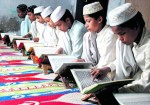
Western Education Vs Islamic Education
Syed Jawed Anwar WHEN Western educated Caucasians entered into Muslim India in 17th century, in 18th century, and in 19th century, they didn’t have any passport of their country of origin or any visa issued by the Indian embassy. There was no requirement of passport or visa he had to obtain for entry into Muslim India or anywhere into the Muslim world. There was no embassy of any Muslim Country anywhere to issue the visa to visit or to migrate.
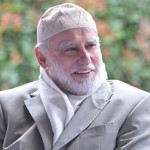
101 Steps in Education
OSMAN NURI TOPBAS 101 Steps: Education begins in the mother’s womb. Therefore a human beings first educator is his mother. Children are divine blessings entrusted upon parents and teachers so as they equip them with high goodness and character Good morals, strong character and personality are the most precious heritage that parents can leave to their children. And the path to achieve this passes through a high quality education.

Land is for Eternity
MUHAMMAD TARIQ GHAZI THIS is my house. I would often say this to visitors about a property that did not belong to me. I was always a tenant. The plot of land and the house belonged to someone else. Then when I was able to purchase a house, I still said to my acquaintances that “this is my house, even though later someone else purchased it when I moved to another town.

Shame on Education Curriculum: Background
EVERY living and non-living thing in this world obeys Almighty Allah (God). It is built in their nature. There is no alternative choice but to obey and surrender to the will of Allah (swt). You will never find an animal or a bird involved in same-sex relationship or engaged in any kind of unnatural behavior.

Ontario Health & Physical Education Curriculum More Controversial than Anticipated
Guiding Through the Sex Ed Confusion There has been much information circulating since the public release of the curriculum on February 23rd, 2015. The revised curriculum is expected to be delivered in classrooms beginning in September 2015. It is important to note that this curriculum is divided into three strands: ï‚· Active Living ï‚· Movement Competence, and ï‚· Healthy Living

Devils Dance in North America
By Jawed Anwar On June 26, 2015, Friday, in the month of Ramadan, US Supreme Court in a 5-4 majority (satanic) ruling announced that same-sex couples have a constitutional right to marry.

A Story of a Lesbian Teacher: How She Indoctrinates Kindergarten Kids
The LGBT activist school teacher is using her lectern to convert young children into homosexual advocates. First she shocks them with her own sexual orientation, then she convinces them her "family" is no different from theirs.

A Parade of Shame for Humanity
[Inspiration: “You are the best of peoples, evolved for mankind, enjoining what is right, forbidding what is wrong, and believing in God.â€-Al-Quran: 3:110] Sunday, 28th June was Gay Pride Day. My city Toronto celebrated it, according to media: “Crowds†estimated in the hundreds of thousands lined up at Toronto's Yonge Street to watch the parade which was themed "Come out and Play.†“Cold temperatures and a constant drizzle didn't seem to cool celebrations at Toronto's 35th annual Pride Para

Sex Ed: Ontario Liberals' Social Fascism
THOUSANDS of parents (about 7,000) rallied at Queens Park on Tuesday, April 14 (a working day) against the new sex education program of Physical & Health Education that should actually be called “sex perverted curriculumâ€. It was massive public outrage to oppose the design of liberal and gay fascists who are imposing their life style to all Ontarians. The new sex education reform is continuation of changing the curriculum and school environment by passing various bills such as Bill 13 and Bill 33; deriv

A Grade-by-Grade Breakdown of Ontario New S-x-Ed Program
Grade 1 Children learn to “identify body parts, including genitalia (e.g., penis, testicles, vagina, vulva), using correct terminology.†Grade 3 Children learn to “identify the characteristics of healthy relationships†including “accepting differences, being inclusive.†They will learn to “respect†how “invisible difference†such as “gender identity, sexual orientation…make each person unique.â€
Featured posts
-
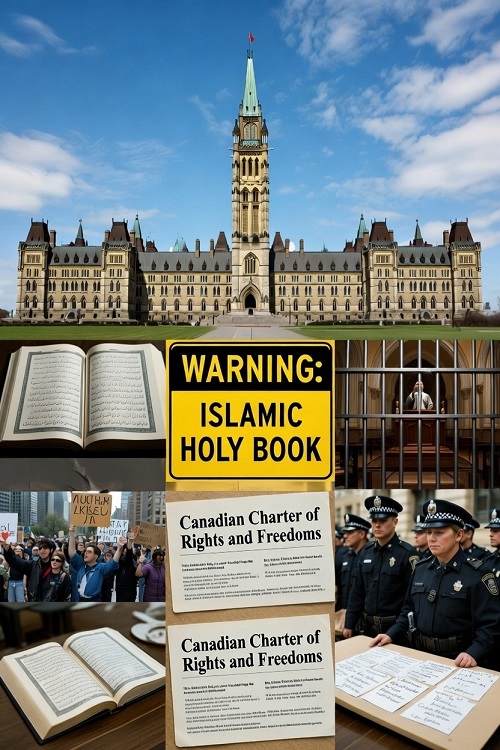
Talking Points Bill C-9: Dangers of Bill C-9 to Religious and Faith Groups Particularly the Islamic Community
(Views: 503 ) 10 January 2026 -

Withdraw Bill C-9 in its Entirety! Canadian Muslim Organizations Stood Firm
(Views: 1357 ) 10 December 2025 -
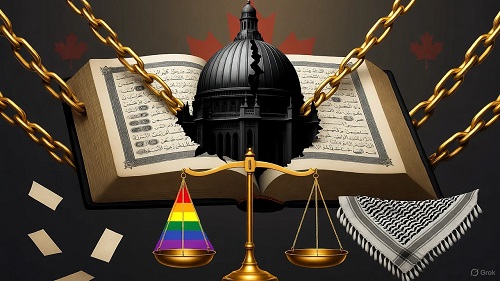
Assault on Faith—Jails for Bible-Quran Reciters? Free Passes for Rapists-Pedophiles?
(Views: 1806 ) 02 November 2025 -
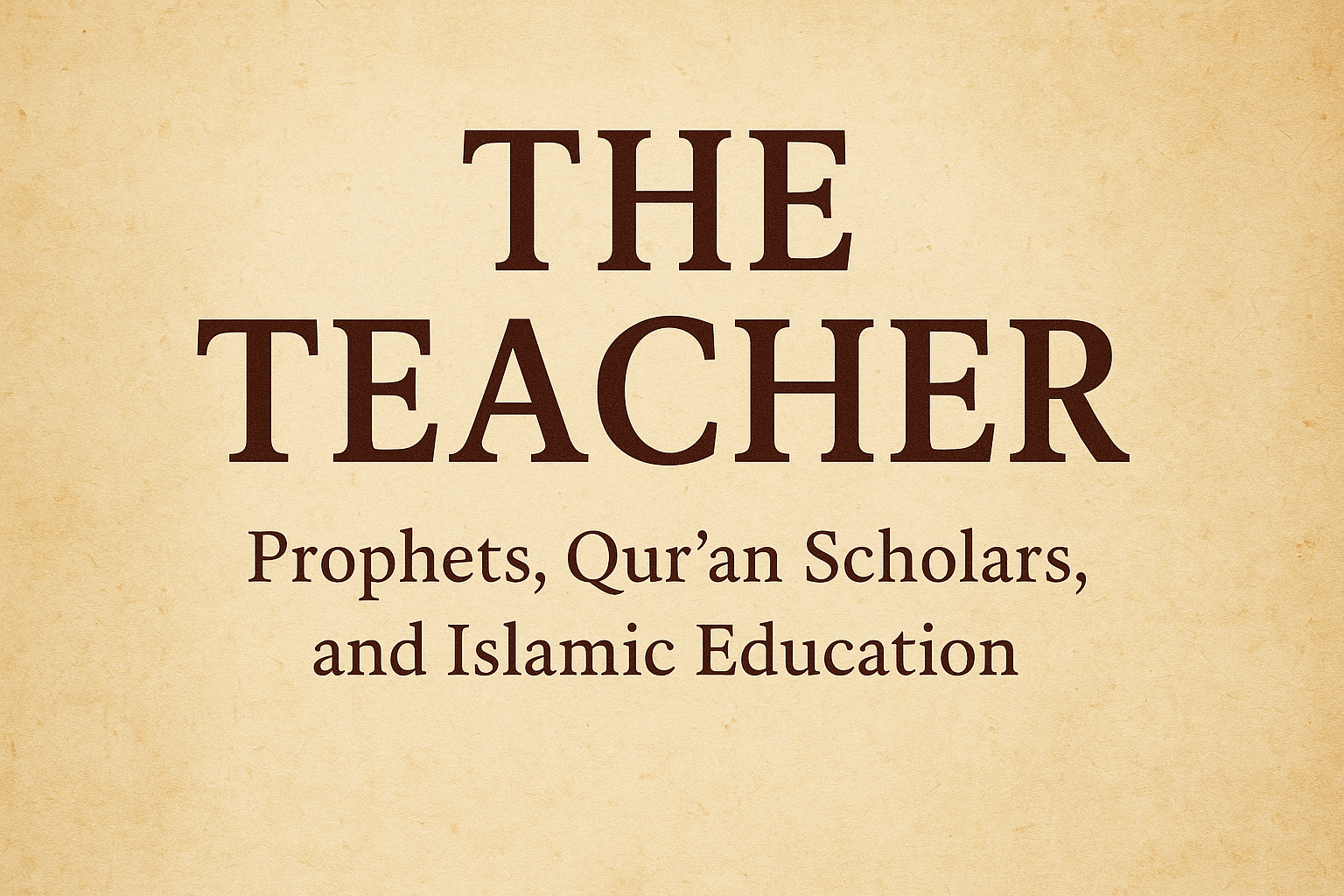
The Teacher -1
(Views: 1474 ) 16 September 2025
